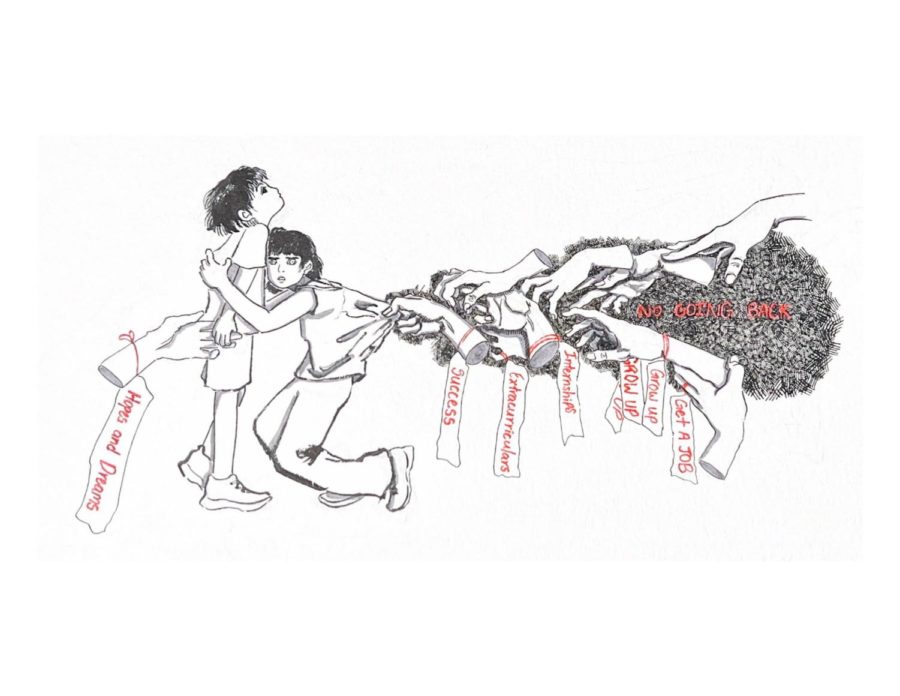Last week a man was shot and killed in Hyde Park. I found out about the shooting when a friend of mine posted a link to a Huffington Post story. The shooting occurred in the very early morning of April 30 in an apartment building at 52nd Street and Harper Avenue. The witness who was wounded in the attack was a close friend of the man who died. He said that neither he nor the deceased knew the shooter. The story was covered in the Tribune and other Chicago news outlets. Despite the relatively high-profile nature of this crime, the University has made no mention of the incident.
Though the University has been silent on this issue, officials have communicated about other security news. In the early evening of April 30th, the day following the shooting, Marlon Lynch sent out a “Spring Safety Update,” which reported that violent crime was down 33 percent from last year. He then stated that “in light of recent events” security would be increased on campus. It was unclear whether the “recent events” that Lynch referred to were the muggings earlier in the month or the shooting that had occurred that very morning, but it seems unlikely that Lynch would not have known about the attack.
Hyde Park is on the whole a relatively safe neighborhood, and I am quite thankful for that. But when something of this violent nature occurs, it must be a University priority to inform its students, faculty, and staff as soon as soon as possible. While I understand that not every mugging is Security Alert material, every shooting should be. The University should re-evaluate its Security Alert guidelines to include alerts for all violent incidents in Hyde Park. We cannot make informed decisions about our safety if crucial information is missing.
A quick jaunt to the University of Chicago Safety and Security page tells us why the incident was not automatically a security alert: The crime did not occur on campus, nor was someone affiliated with the University injured. However, the facts that neither of the victims was affiliated with the University and that the shooting did not occur on campus do not mean that the shooter could not have posed harm to students, staff, or faculty. Many University affiliates live in that area or patronize the businesses along 53rd Street that are near the site of the shooting. It would be naive to think that the University bubble excuses our ignoring what goes on in the rest of Hyde Park.
This incident points to the difficulty of engaging in an informed discussion about crime within Hyde Park. It has been the trend of late to accuse the University of failing to participate in open dialogue about all sorts of issues, from the trauma center to police practices to its investment policies. In the case of dialogue about crime, the University is only partially to blame. Many students, myself included, don’t have a good sense of how safe or dangerous Hyde Park is; most of us rely on a combination of hearsay and security alerts to judge how safe we are and make safety decisions, and that’s far from a comprehensive view of crime.
However, I also do not trust the University to give us a clear picture of crime. It has a vested interest in presenting a certain image of Hyde Park: the image of a safe neighborhood where violent crime is not a problem. From the University’s perspective, a shooting is, in effect, a large P.R. problem. The cynical part of me wonders whether the University has been so silent about the shooting because it occurred near the new developments on 53rd Street, an area that it cannot afford to be associated with crime. Though I would not go so far as to say that the University intentionally made no mention of the incident, I would not be surprised if P.R. issues were a factor in its decision.
Setting these concerns aside, where they belong, the fact remains that student, faculty, staff, and community safety should be the University’s top priority. If the University had more common-sense guidelines for what crime information it should disseminate, we would all feel safer. After all, it is the gaps in our knowledge that are frightening: If we knew that the University would alert us to serious violent crimes, we could take no news as good news instead of a failure to communicate.
Maya Fraser is a third-year in the College majoring in sociology.








